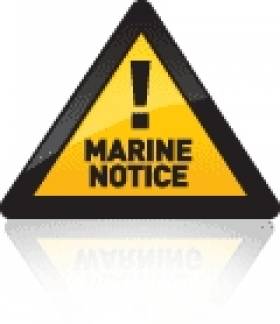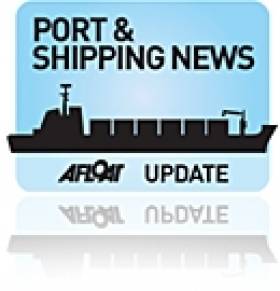Displaying items by tag: Maritime Labour Convention
Maritime Labour Convention Comes Into Force This Month
#MarineNotice - The latest Marine Notice from the Department of Transport, Tourism and Sport (DTTAS) advises that the Maritime Labour Convention 2006 (MLC 2006) comes into force in Ireland on 21 July 2015.
The Maritime Labour Convention (MLC) was adopted at the 94th International Labour Organisation’s (ILO) Maritime Session on 23 February 2006 in Geneva.
The MLC seeks to ensure that the employment and social rights of seafarers are fully implemented. It will enter into force for Ireland on 21 July 2015, 12 months after the date on which Ireland’s ratification was registered with the ILO.
Details for the survey and certification of ships of 500 GT or over; inspection for compliance of ships less than 500 GT; and onboard complaint procedures are included in Marine Notice No 30 of 2015, a PDF of which is available to read or download HERE.
Ports & Shipping Review: First Irish Maritime Forum, Galway's Liner Tender Ties, Ireland Sign Maritime Labour Convention
#Ports&ShippingReview: Over the last fortnight, Jehan Ashmore has reported on the shipping scene, where the Port of Cork is to host the first Irish Maritime Forum on 26 September.
The forum themed 'Developing the Dynamic Future for Ireland's Maritime Sector' will focus on exploring the future of the maritime sector within Ireland and will look closely at the challenges and opportunities faced by many within the sector.
Having made an anchorage call off Galway Harbour, Holland America Line's 800 passenger Prinsendam and her fleet of tenders leave in their wake strong ties with the mid-west port.
Minister for Transport, Tourism and Sport,Paschal Donohoe TD, and the Minister for Jobs, Enterprise and Innovation, Richard Bruton TD, announced the ratification by Ireland of the Maritime Labour Convention, which sets standards for working and living conditions for seafarers.
Dublin Port Company's 2013 Annual Report is now available as an 'online' version. The report in both Irish and English is downloadable in PDF format as well as an HTML version are now available through this LINK.
Government Ratify Maritime Labour Convention
#MaritimeConvention -Minister for Transport, Tourism and Sport, Paschal Donohoe TD, and the Minister for Jobs, Enterprise and Innovation, Richard Bruton TD, have announced this week the ratification by Ireland of the Maritime Labour Convention, which sets standards for working and living conditions for seafarers.
The Convention will improve working and living conditions for ship workers making the maritime sector more socially responsible.
This means that from 21 July 2015, Ireland will be a party to the Convention and will implement the requirements contained therein, both for Irish-flagged ships and for international ships calling at Irish ports.
In the meantime, work is progressing on the inspection and certification of Irish ships in preparation for entry into force of the Convention for Ireland.
A Declaration of Maritime Labour Compliance – Part I has been issued to all Irish-flagged vessels of 500 Gross Tonnage or more which operate internationally, and ship owners have completed a Declaration of Maritime Labour Compliance – Part II.
Work is also underway on preparing for port State control inspections for foreign-flagged ships in Ireland when the Convention enters into force here.
Minister Donohoe said: 'I am delighted that Ireland has now ratified this Convention, which underlines our commitment to maritime safety and to improved living and working conditions for seafarers. Implementation of the Convention will improve Ireland's international maritime reputation, as well as ensuring that seafarers enjoy better conditions, and that the shipping sector generally becomes a more secure and socially responsible sector'.
Minister for Jobs, Enterprise and Innovation, Richard Bruton TD, whose Department has overall responsibility for ILO matters, also welcomed the ratification, saying: 'I am very happy to welcome the ratification of this important international labour standard. This Convention will improve working and living conditions for workers on board ships and should lead to more secure, better-protected and responsible maritime employment. Ireland is fully behind the ILO's efforts to define international labour standards in this important sector'.































































